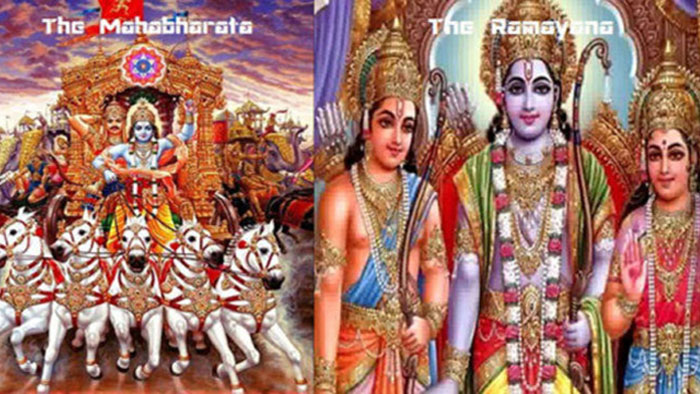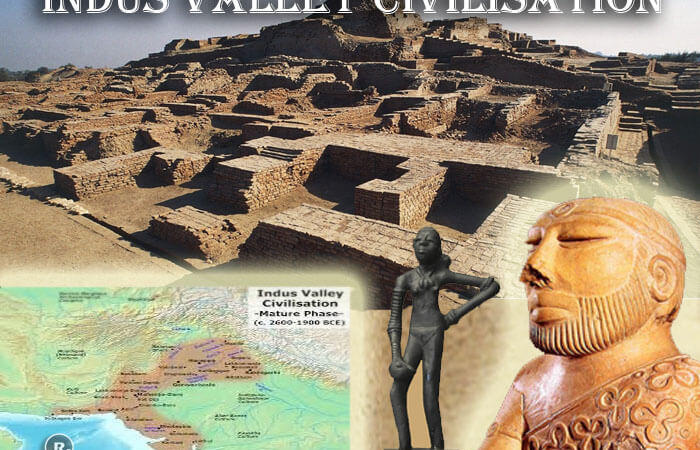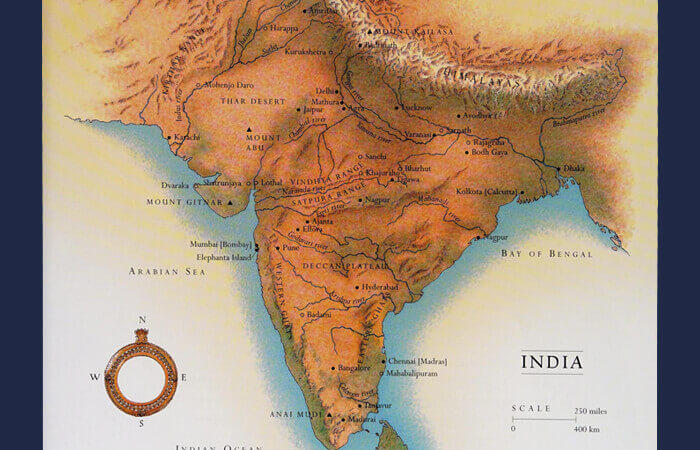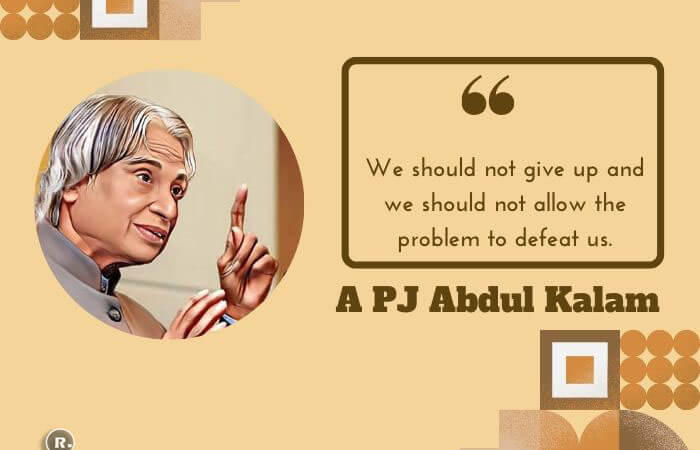Mahabharata As A Religious Text

Mahabharata is just not a story it is a religious text, the foundation for Hinduism. It has remained central to Hindu culture since it was first composed. It is “great” (Maha), as its name claims, not only in size but in scope. Hindus from the time of the composition of the Mahabharata to the present moment know the characters in the texts just as Christians and Jews and Muslims, even if they are not religious, know Adam and Eve.
To this day, India is called the land of Bharata, and the Mahabharata functions much like a national epic.
At moments scattered through the text, the Pandava’s cousin, the incarnate god Krishna, intervenes, most famously in his counsel to the hero Arjuna on the battlefield of Kurukshetra, which many Hindus revere as the Bhagavad Gita, “the song of god”.
Krishna straddles the line between a human prince and an incarnation of Vishnu. Other gods, however, appear in unambiguous full divinity throughout the epic. Throughout the Mahabharata, we encounter people who say they worship a particular god, the start of sects and therefore of sectarianism. It includes a “Hymn of the Thousand Names of Shiva” and tells a story about the circumstances under which Shiva came to be worshipped.
Shiva appears to Arjuna in the form of a naked tribal hunter and occasionally goes in human disguise among mortals. Pilgrimage is described at length, particularly but not only in the “Tour of the Sacred Fords”. Many chapters in Mahabharata are devoted to disquisitions on the nature of spiritual peace (shanti) and liberation (moksha) from the wheel of transmigration (samsara). And the test not only describes several great sacrifices – a triumphal horse sacrifice after the great war near the end of the story, and a grotesque sacrifice of snakes at the beginning – but often describes the battle itself as a great sacrifice, in which the warriors offer themselves as victims.
The great battle on the field called Kurukshetra is also an eschatological conflict at the moment when the universe is about to self-destruct. The end of that battle marks the beginning of the Kali age, the fourth of the four degenerating ages, or yugas.
Even within this moment of degeneration, Krishna is said to descend to earth (as an avatar of the god Vishnu) to restore dharma (the moral law) when it has declined in the course of the cycle.
Mahabharata called history, is the supreme purifier. It is said whatever wise man recites this constantly at every lunar fortnight, his evils are shaken off, he wins heaven, and he goes to the state of Brahman. Whatever sin one commits by day in the senses or even in the mind and heart, he is set free from that at that evening twilight by narrating the Mahabharata.
It is called “Victory“, and should be heard by anyone who wants power, and also be a king, be a king’s son, and by a pregnant woman. A person who desires heaven would get heaven, and one who desires victory would get the victory. A pregnant woman gets a son or a well-married daughter.
Whoever recites this worthy history that has great meaning and value and is Veda-made, that man becomes free from evil, achieves fame on earth, and will achieve supreme success.

Suggested Read: The Epics | Ramayana | Mahabharata
Mahabharata is an exposition of dharma, the moral and religious law of Hinduism, including the proper conduct of a king, of a warrior, of an individual living in times of calamity, and of a person seeking to attain freedom from rebirth. The text debates the clash between, on the one hand, the growing doctrine of non-violence toward all creatures (ahimsa) and, on the other, both the justice of war and the still-dominant tradition of animal sacrifice. It both challenges and justifies the entire class structure.
Many other deep philosophical questions, too, grow out of the human dilemmas that tangle the protagonists in their coils. Dharma continued to denote the sort of human activity that leads to human prosperity, glory, ad victory(“Where there is dharma, there is victory,” the est famously proclaims), but now it also had much more to do. For now, the text was often forced to acknowledge the impossibility of maintaining any sort of dharma at all in a world where every rule seemed to be canceled out by another.
The gods too were sometimes tripped up by the subtlety of dharma. Time and again when a character finds that every avaliable moral choice is the wrong choice, or when one of the good guys does something very wrong, he will mutter, or be told, “Dharma is subtle” (sukshma), thin and slippery as a fine silk sari, elusive as a will-o-the-wisp, internally inconsistent as well as disguised, hidden, masked. People try again and again to do the right thing, and fail and fail until they no longer know what the right thing is.
The Mahabharata deconstructs dharma, exposing the inevitable chaos of the moral life. The narrators kept painting themselves into a corner with the brush of dharma.
Suggested Read: Bhishma Ashtami






